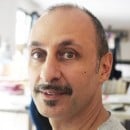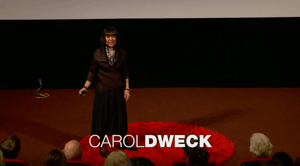The mindset is the focus of the studies carried out by Carol Dweck, Professor of Psychology at Stanford University.
Her key message is as simple as it is fascinating: by developing a growth-oriented mental attitude, we can improve the capacity of our brains and learn to solve problems – in all fields and at all ages.
It is difficult to remain indifferent to the examples given by Dweck, like when she talks about the reaction of 10-year-old children after she gave them a task that was slightly too hard for their age to see how they coped with the challenge:
“Some of them reacted in a shockingly positive way. They said things like, “I love a challenge”. They understood that their abilities could be developed. They had what I call a growth mindset. But other students felt it was tragic, catastrophic. From their more fixed mindset perspective, their intelligence had been up for judgment and they failed.”
Intelligence, basic attitudes and belief systems with which we see ourselves and the world, usually are considered to be hereditary and unchangeable. From this perspective, however, they can be cultivated, changed and transformed with time and commitment. Those that acquired this particular mindset processed the error, learnt something from it and corrected themselves.
It is clear that such an outlook has a significant impact on education systems. But then how should we bring our children up? And can we do it? Dweck gives the following response to these crucial questions:
“First of all, we can praise wisely, not praising intelligence or talent. That has failed. Don’t do that anymore. But praising the process that kids engage in: their effort, their strategies, their focus, their perseverance, their improvement. This process praise creates kids who are hardy and resilient. And we can change children’s mindsets. In one study, we taught them that every time they push out of their comfort zone to learn something new and difficult, the neurons in their brain can form new, stronger connections, and over time they can get smarter”.
And this is not just a case of wonderful theories. Over the years Dweck has seen this kind of improvement in thousands of children, and especially in students with difficulties. And the results are extraordinary.
“In one year, a kindergarten class in Harlem, New York, scored in the 95th percentile on the national achievement test. Many of those kids could not hold a pencil when they arrived at school. In one year, fourth-grade students in the South Bronx, way behind, became the number one fourth-grade class in the state of New York on the state math test. In a year, to a year and a half, Native American students in a school on a reservation went from the bottom of their district to the top, and that district included affluent sections of Seattle. So the Native kids outdid the Microsoft kids”.
‘Miracles’ happened because those children were taught to transform the meaning and value of effort and difficulty. Before, when they came across a challenge, they felt stupid and wanted to throw in the sponge immediately. At a certain point, however, they realized that if efforts and difficulty were dealt with in a constructive manner, they made them stronger and smarter.
In fact, the teachings of Dweck are rooted in an ancient wisdom. It is important to be aware that failure can also be a very painful experience. But it doesn’t define you. And the margins of improvement that we have before us are potentially infinite. As Nelson Mandela famously said: “I never lose. I either win or I learn”.

